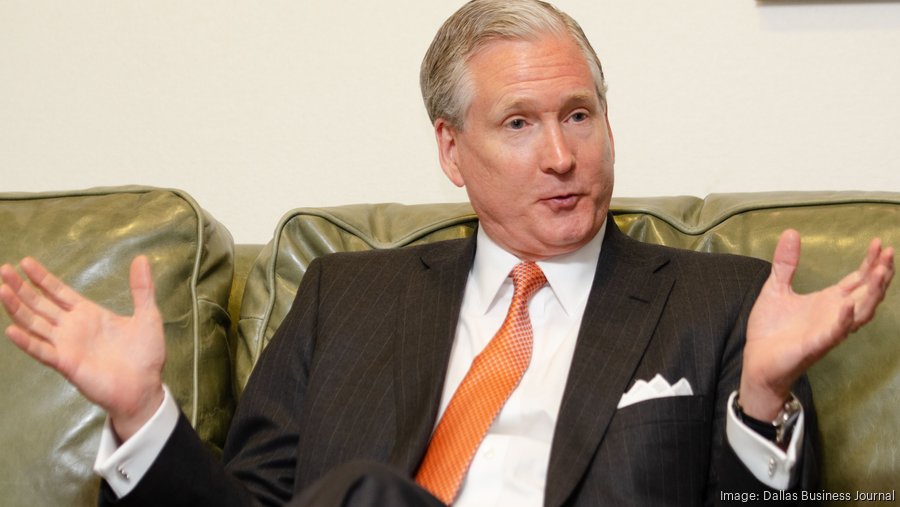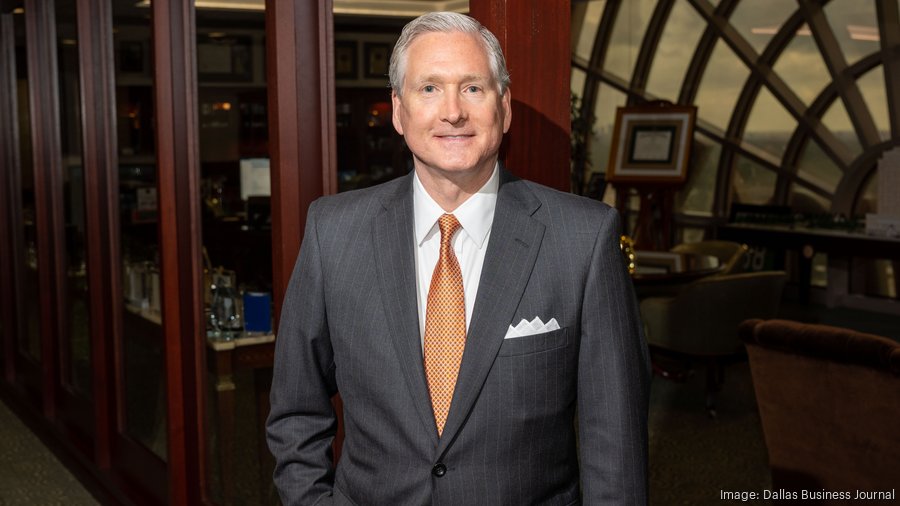Model trains run by a miniature figure of a Dallas house, a hotel in West Texas, a chapel in Shreveport, through tunnels and over hills, all cataloging the life of G. Brint Ryan. The little locomotives, which take up a whole room in Ryan’s house, follow the tracks that represent the executive's journey.
Like the tiny, autobiographical railroad, Ryan designed the path that his eponymous tax firm chugged along to grow from a contrarian shop into a $2.5-billion company.
The chairman and chief executive has run his business his own way for 30 years, bucking business models that have stood for 150 years, rewriting the rules for a major services firm and keeping an eye on the future of technology and tax.
Ryan launched the business at 27 years old, fresh from a post-university stint at Coopers & Lybrand, now PwC. Ryan moved against the grain of the tax industry right out of the gate. While other practices charged based on hours and rates, the then-27-year-old’s group offered “success-based” fees.”
“We started success-based fees early in our formation out of necessity. We were unknown,” Ryan said. “Most of our clients already had other entrenched providers. We had to come up with a way to get them interested in entertaining us. We came up with the idea of, ‘If we don't save you money, don't pay us.'”
JCPenney bit, hiring Ryan in the early days. The CEO said most people told him the business would fail.
“On my way out the door at Coopers & Lybrand, they said, ‘Brint, if Coopers & Lybrand is not on your business card, nobody will call you back,’” Ryan said. “And I half-believed that.”
Ryan divides the firm’s growth into three phases: first, proving itself in the market; second, scaling through acquisitions and evolving culture; and third, developing its technology and software with external capital. The Dallas-based company has grown into a 3,500-employee workforce, 550 of which are in North Texas, with clients in 60 countries. The firm's 2020 revenue was $626 million, Ryan told Dallas Business Journal.

The tax company saw steady growth in its first few years, Ryan said. The North Texas State graduate (now University of North Texas) said being young and plucky is probably what helped him make the leap to start his own firm.
“Had I not been at the ripe old age of 27 when I did it, I probably wouldn't have done it,” Ryan said. “I didn't know better. I was not far enough along in my career to have been trained to the point where any sane person would have said, ‘You can't do that.’”
The firm has since built a reputation for doing what others can't.
When Ryan began scaling through acquisitions in its second phase of growth in 2006, the company culture hit a crossroads. One of the firm's up-and-coming partners, Kristi Bryant, told Ryan she had to resign because she wanted to have a family, and not work 55-hour weeks and mandatory Saturdays.
“It was a pivotal moment in my career,” Ryan said. “I thought about it, and if we're going to invest all this money and time training people, and lose them like this, there's something wrong with the business model.”
Ryan changed the business model. In 2008, the firm launched myRyan, a work system that implemented flexible work hours and a hybrid office environment as long as employees maintained client satisfaction and created value for the firm. At the time, Ryan said other partners and advisors said productivity and billings would go down because accounting and tax firms had been run the same way for 150 years for a reason. Ryan took what seemed like a risk at the time.
“In my heart, I knew that if we put our trust in people, if we empowered them, if we let them figure out the best way to get the job done, that they were going to outperform our expectations,” Ryan said. “That's exactly what happened … We saw attrition rates go way down.”
Bryant stayed on, and now serves as a principal and vice practice leader of transaction tax in the Dallas office.
The company’s gritty attitude hasn’t always produced wins. Ryan said failure has been a teacher through the firm’s evolution, but the firm has made maverick calls even when it's been derailed.
In 1997, the CEO and about a half-dozen partners went nearly a year without pay.
“I made a blunder that almost broke us. We were having a lot of success, and we over-hired meaningfully. Back in those days … we had to carefully manage the business payroll to payroll. We had more costs than we had revenue coming in,” Ryan said. “I went to my partners and I said, ‘Look, we've hired all these people. They're gonna pay off, but we're in trouble in the interim. What do we do?’ We agreed as a partner group that we were not going to take pay until we got the business right-sized.”
Now, the company is in its third phase of growth — ending in, Ryan hopes, the development of the “dominant global brand in tax.”
Last month, private equity titan Ares Management Corporation announced it will acquire a minority stake in Ryan in a deal that valued the firm at $2.5 billion. The investment, expected to close in the third quarter, follows Toronto-based Onex Corporation’s $317-million investment in Ryan in 2018.
Ryan’s evolution will take massive technology and software development, Ryan said. Until the Onex investment, the CEO said he didn’t appreciate how institutional investors could help the business fit into the broader tax and tech ecosystem. He said the world is in the “second inning” of how technology is going to transform tax.
“We think focusing on the technology part of our business, really scaling our software solutions and our SaaS business is the future of tax,” Ryan said. “The future of the business? We want to grow from the number-one tax-only firm to the dominant global brand in tax. That's a multi-billion dollar organization working in 100 countries around the world. We think that's our destiny.”
Even though Ryan thinks the company is about five years out from his dream of being the “Amazon of tax,” he still calls the three-decade-old business scrappy. He said Ryan will still buck tradition, try new ways of operating and retain an entrepreneurial spirit.
As the steam engine of the company keeps moving forward, what’s next on the agenda for Ryan’s model train memoir? The business conductor said that might be more complicated.
“I’m out of room,” Ryan said. “I’ve collected so much that I don’t have space for more.”




